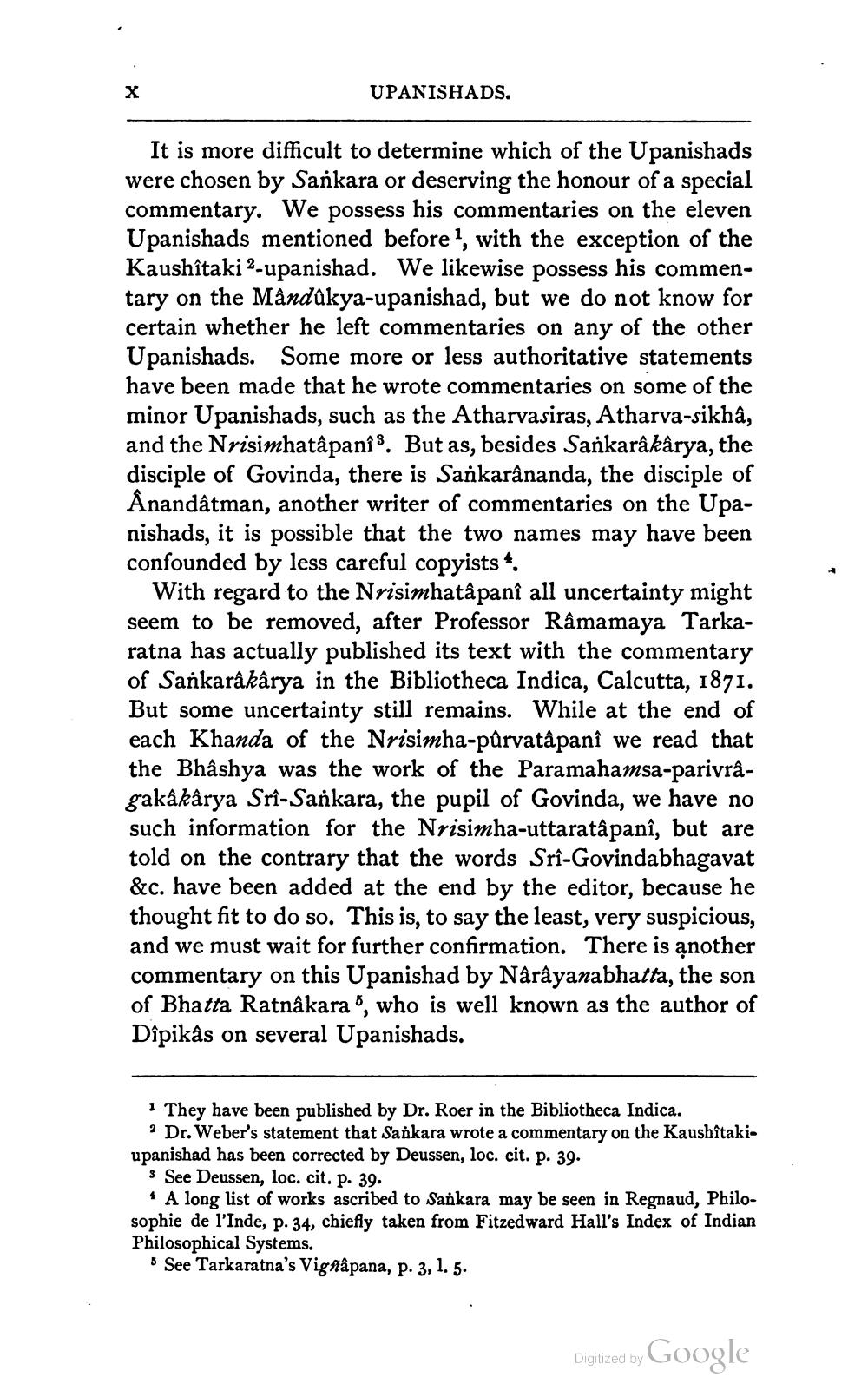________________
UPANISHADS.
It is more difficult to determine which of the Upanishads were chosen by Sankara or deserving the honour of a special commentary. We possess his commentaries on the eleven Upanishads mentioned before !, with the exception of the Kaushitaki 2-upanishad. We likewise possess his commentary on the Mândukya-upanishad, but we do not know for certain whether he left commentaries on any of the other Upanishads. Some more or less authoritative statements have been made that he wrote commentaries on some of the minor Upanishads, such as the Atharvasiras, Atharva-sikha, and the Nrisimhatâpanîs. But as, besides Sarkarâkârya, the disciple of Govinda, there is Sarkarânanda, the disciple of Ånandâtman, another writer of commentaries on the Upanishads, it is possible that the two names may have been confounded by less careful copyists*
With regard to the Nrisimhatâpani all uncertainty might seem to be removed, after Professor Râmamaya Tarkaratna has actually published its text with the commentary of Sankarâkârya in the Bibliotheca Indica, Calcutta, 1871. But some uncertainty still remains. While at the end of each Khanda of the Nrisimha-purvatâpanî we read that the Bhâshya was the work of the Paramahamsa-parivrâgakâkârya Srî-Sankara, the pupil of Govinda, we have no such information for the Nrisimha-uttaratâpanî, but are told on the contrary that the words Srî-Govindabhagavat &c. have been added at the end by the editor, because he thought fit to do so. This is, to say the least, very suspicious, and we must wait for further confirmation. There is another commentary on this Upanishad by Nârâyanabhatta, the son of Bhatta Ratnakara 5, who is well known as the author of Dîpikâs on several Upanishads.
1 They have been published by Dr. Roer in the Bibliotheca Indica.
? Dr. Weber's statement that Sankara wrote a commentary on the Kaushitakiupanishad has been corrected by Deussen, loc. cit. p. 39.
3 See Deussen, loc. cit. p. 39.
+ A long list of works ascribed to Sankara may be seen in Regnaud, Philosophie de l'Inde, p. 34, chiefly taken from Fitzedward Hall's Index of Indian Philosophical Systems.
5 See Tarkaratna's Vignâpana, p. 3, 1. 5.
Digitized by Google




